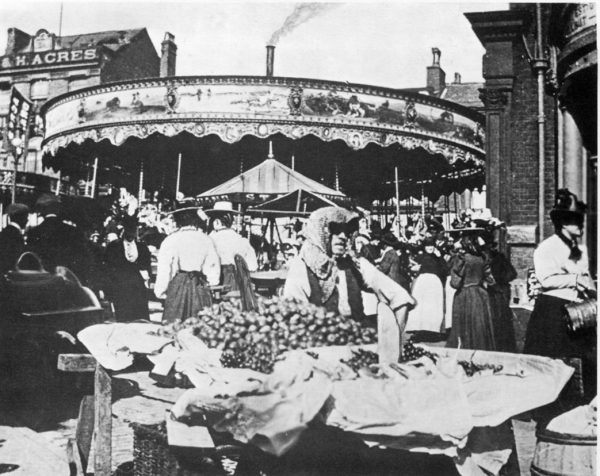The Wakes Annual Holiday, was one of the most important dates in the Potteries callender for over a thousand years. It commenced as a religious festival for the parish of Stoke which covered most of the potteries was dedicated to St. Peter ad Vincula 1st August or the first Sunday of the month. This was supported centuries later with industry taking the first week in August as an industrial holiday for the whole of the district.
In fact, by 1833 wakes celebrations became of local concern for the Primitive Methodists in Longton who at the time of the annual wakes held religious camp meetings where many attended from other towns and distant villages of the district. These were to “counteract the ill-effects of the wakes of drunken disorderly people” but this was counterbalanced by manufacturers and coal proprietors entertaining their workers with dinner and plum pudding. A decade later there appears to be a more-sober approach to the celebrations with friendly and benevolent society activities, Sunday School anniversaries and the annual Pottery Races.
As towns started to expand with workers and manufactories the 1840s the annual wakes festival became an intrinsic part of the Potteries calendar as each town was described as “full of jollity”. Every public house and open space were crowed with potters and colliers, who went out full of pride in their Sunday best as they promenaded around town centers. There were side-shows and exhibitions that attracted lovers of the unexpected, giants and dwarfs, mermaids, learned pigs, peep-shows, conjurors, and slight-of-hand performers packing out every corner of the towns. However, the friends of religious education of the young were there to observe and, in their view, to protect the vulnerable. No doubt many reading this short introduction to the section will be keen to follow how it progressed and who became involved in one of the important days of the year for potteries people. For those keen to read just what it was like, and the celebrations along with students of social and economic history, this period in history can prove a great contribution. A good study of the social history of Stoke-on-Trent.















Reviews
There are no reviews yet.